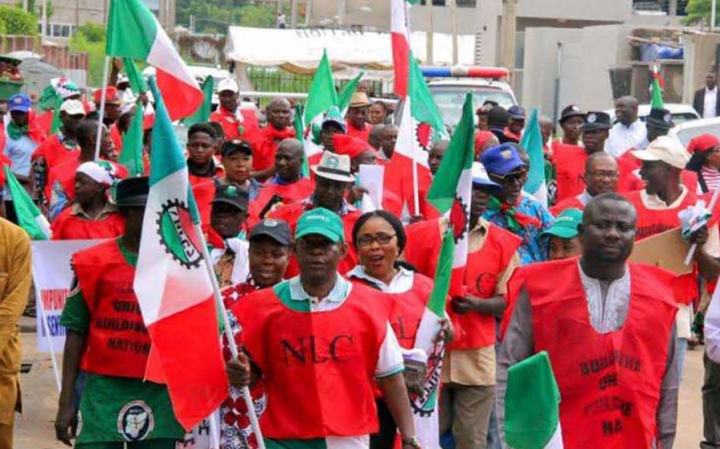The Nigeria Labour Congress (NLC) has outrightly rejected the Federal Government’s newly approved National Industrial Relations Policy, describing it as an attempt to weaken trade unions and criminalise lawful strike actions. The NLC raised alarm that the policy, as approved by the Federal Executive Council, poses a grave threat to workers’ constitutional rights and industrial democracy in Nigeria.
In a strongly worded statement, NLC President, Comrade Joe Ajaero, warned that any move by the government to restrict or criminalise strikes would be met with stiff resistance from organised labour. He described the policy as a veiled attack on the rights of Nigerian workers to organise, negotiate, and, when necessary, withdraw their services peacefully and legally.

According to Ajaero, the new policy gives the impression that strikes are the main obstacle to industrial peace in the country, when in fact, most strike actions are the direct result of government failures to meet agreements or respect labour laws. He argued that portraying strikes as unlawful or disruptive ignores the important role they play in holding employers and authorities accountable, especially in a country where workers’ welfare is often neglected.
The NLC leader noted that during the drafting of the policy, labour representatives had expressed serious reservations about specific provisions that sought to introduce legal penalties against unions for engaging in strike actions. These concerns, he said, were not properly addressed before the policy was approved. Ajaero maintained that no policy can override the clear provisions of the Nigerian Constitution and the Trade Unions Act, both of which guarantee the right to peaceful protest and industrial action.
He also pointed out that attempts to criminalise strikes run contrary to international labour standards and conventions that Nigeria has ratified. These conventions uphold the rights of workers to organise and take collective action without fear of persecution or harassment.
The NLC expressed particular concern over the possible misuse of the policy by employers or government agencies to suppress dissenting voices in the workplace. Ajaero stated that with this policy in place, workers may face intimidation for merely attempting to exercise their rights to protest poor wages, poor working conditions, or unfulfilled agreements.
He further explained that the right to strike is not just a legal tool but a moral one — an instrument used by workers to defend their dignity and demand fairness. Removing or criminalising that right, he warned, would turn the workplace into an environment of fear and silence, where exploitation thrives unchecked.
The NLC has vowed to mobilise its members across all sectors to resist what it calls an anti-worker and undemocratic policy. The congress said it is already consulting with its affiliates, civil society organisations, and legal experts to determine the best course of action, which may include public protests, legal challenges, or coordinated nationwide actions.
Joe Ajaero urged the Federal Government to retrace its steps and engage in genuine dialogue with organised labour on how best to improve industrial relations. He emphasised that lasting industrial peace cannot be achieved by force or suppression, but through mutual respect, fairness, and a commitment to upholding agreements.
The NLC further criticised what it described as the government’s increasing tendency to clamp down on union activities under the guise of reform. It warned that any attempt to silence the voice of workers would only deepen mistrust and create more unrest in the country.
Observers within the labour movement believe that this confrontation could escalate if the government proceeds with implementing the policy without addressing labour’s concerns. They argue that a democratic society cannot thrive where workers are stripped of their right to protest, especially in a context where wages remain stagnant and inflation continues to erode purchasing power.
In recent months, industrial tensions have been on the rise, with several sectors threatening strikes over unresolved issues including minimum wage delays, non-payment of salary arrears, and poor working conditions. Labour leaders have consistently maintained that strikes are always a last resort when dialogue fails, and that government must do more to honour its commitments.
The NLC reaffirmed its readiness to work with the government in reviewing the policy to reflect fairness and respect for the rights of workers. However, it insisted that any attempt to criminalise union activities would be fiercely resisted.
The congress concluded by calling on all workers to remain alert and united, warning that this is not just a labour issue, but a battle to preserve democracy and civil rights in Nigeria’s workplaces.
With tension brewing, the coming weeks are expected to determine whether the Federal Government will reconsider its position or risk a renewed wave of labour unrest across the country.
Support InfoStride News' Credible Journalism: Only credible journalism can guarantee a fair, accountable and transparent society, including democracy and government. It involves a lot of efforts and money. We need your support. Click here to Donate
